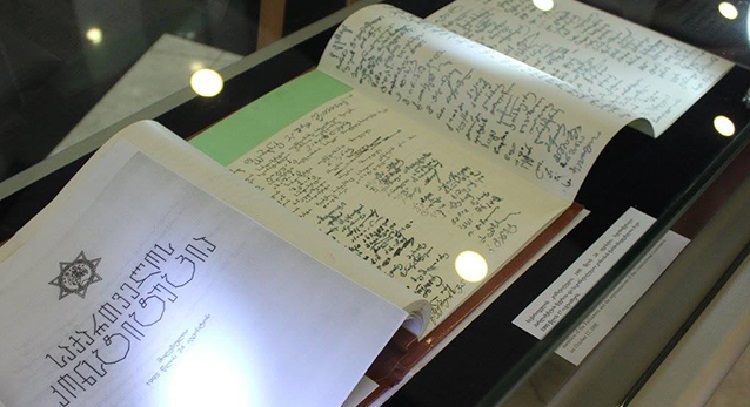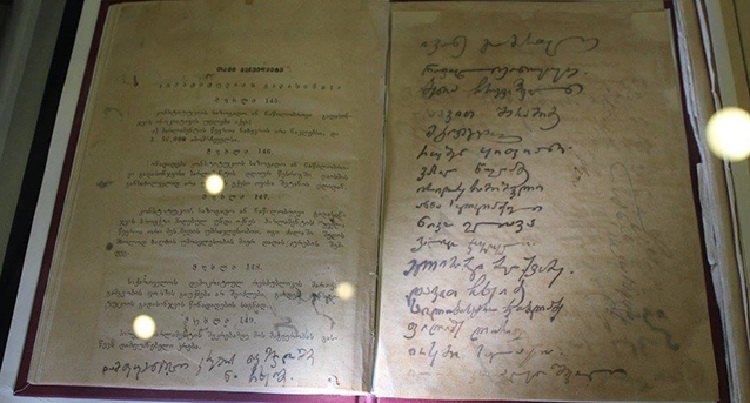Georgia marks 100th anniversary of first constitution

Today marks 100 years since the adoption of the constitution of the First Democratic Republic of Georgia in 1921. Photo: National Archives of Georgia.
A century ago on February 21, 1921, the Constituent Assembly of Georgia adopted a landmark historical document that formed the basis of the country’s contemporary constitution.
The historic occasion in the Georgian capital of Tbilisi was held three years after the country had gained independence from Russia in 1918 and only four days before the country again fell under occupation by Soviet forces.
Despite its short life, the 1921 constitution is considered a cornerstone of Georgia’s independent statehood that serves as the basis for the modern-day constitution.
 The original 1921 constitution is preserved at the National Archives in Tbilisi. Photo: National Archives of Georgia
The original 1921 constitution is preserved at the National Archives in Tbilisi. Photo: National Archives of Georgia
Outlining the political structure of Georgia as a democratic republic, the constitution also formalised basic subjects such as state language.
The document heralded progressive democratic principles in the fields of human rights, social equality and the political participation of citizens.
It also declared the rights of minorities and their access to social, economic and cultural development.
Adopted in 1995, the new constitution was modelled after the 1921 document.
After the waves of public and parliamentary discussions in 2017, Georgia adopted the new edition of the Constitution to better reflect the country’s current challenges.
 Tweet
Tweet  Share
Share